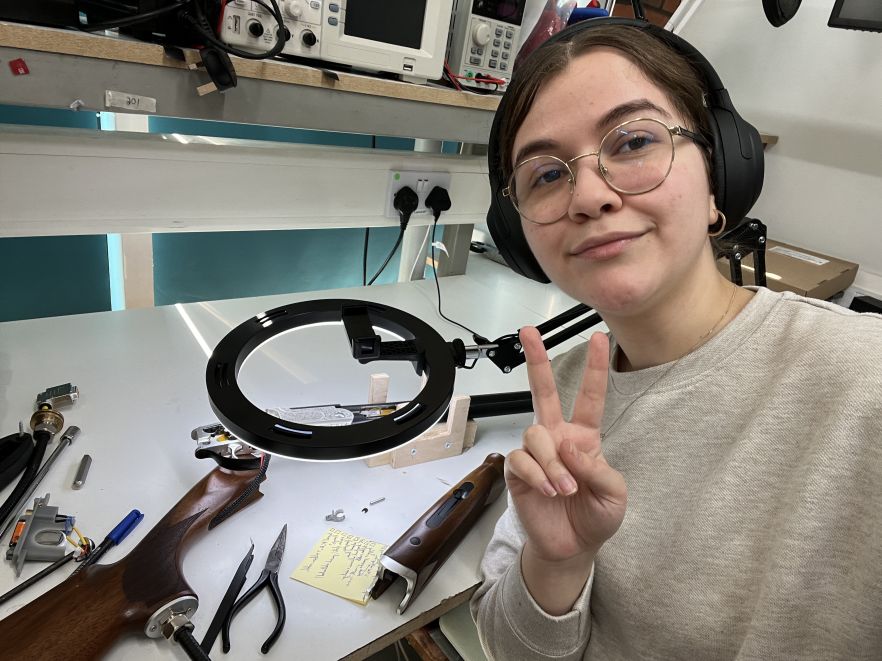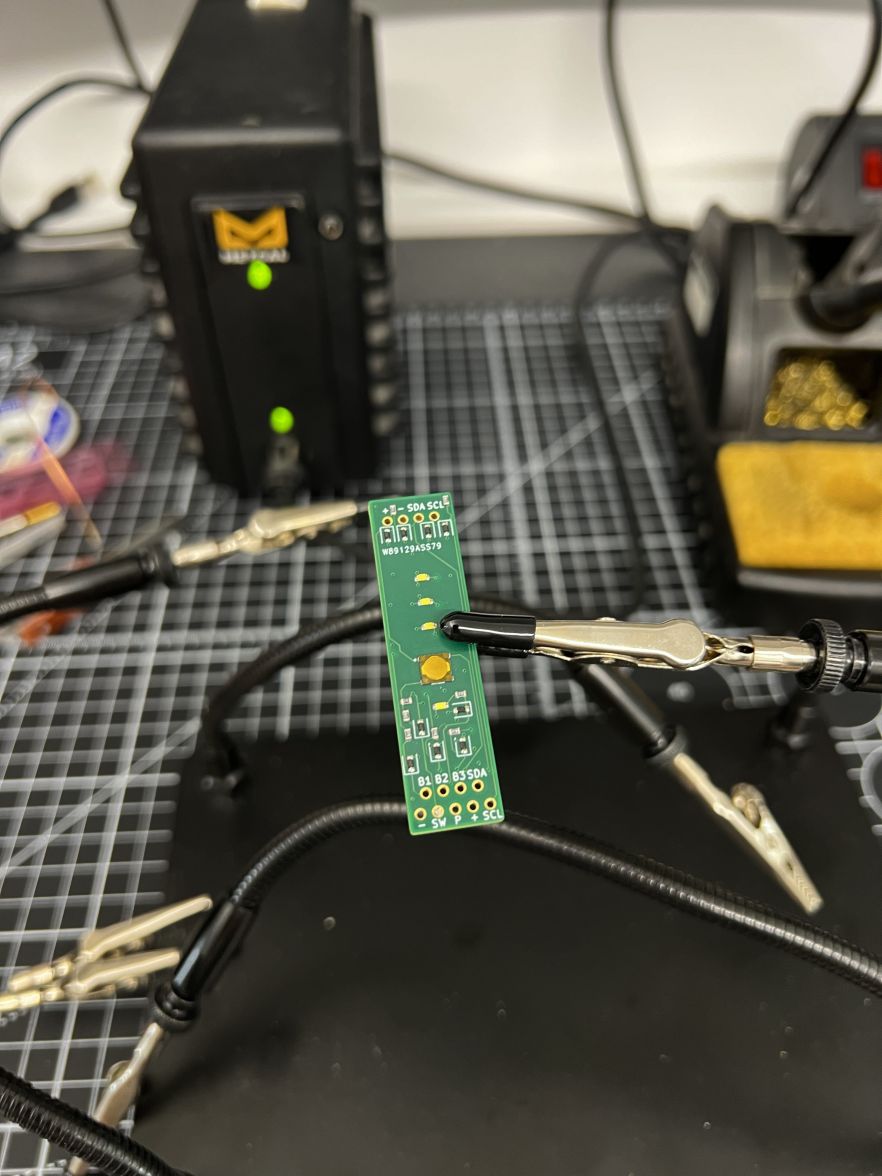Bianca's placement story

Bianca Patru is studying BEng Robotics Engineering. For her industrial placement year she joined Interactual Ltd, an engineering consultancy firm, as a Junior Development Engineer. She tells us about her experience so far.
I started this placement without a clear idea of what being a Development Engineer really involved — I didn’t know all the ins and outs of the role. I was surprised by how quickly I adapted and how much responsibility I was trusted with, from researching solutions to communicating directly with clients and suppliers. It turned out to be a lot more dynamic and rewarding than I imagined.
It’s given me insight into how projects come together in the real world — not just from a technical angle, but also from a business and process perspective. I know this will be valuable wherever I go next.
Varied skills and experience
Working for an engineering consultancy firm has given me the opportunity to work on projects related to a variety of sectors including the hospitality, medical and education sectors.
One of the most valuable technical skills I have developed during the placement is PCB (printed circuit board) design and assembly. I learnt to use ECAD tools and learnt about standard design practices commonly applied in consumer electronics. I also learnt key aspects of design for manufacturing (DfM) when creating products, as well as sourcing components, comparing costs and delivery times.
Another learning opportunity I had was learning about what it takes to design and integrate an industrial-grade control system within a device. I also learnt about key electrical safety considerations, including proper grounding, insulation and protection.
Working with others played a major role in my development. I have improved my listening skills and become more confident in presenting my work during meetings. I have also adopted agile working techniques and prioritisation strategies to manage my responsibilities more effectively.
My proudest achievements
The most enjoyable part of my placement has been getting to work on real projects and seeing my ideas evolve into something tangible. I am really proud of a printed circuit board I designed from scratch in the electronics lab — there’s something incredibly satisfying about watching a concept you’ve been developing turn into an actual, functioning product.
I created several user guides and support documents covering device operation, troubleshooting, and assembly/disassembly procedures for multiple products, which I then used to train and support fellow employees, leading informal sessions to explain how to use these resources and key processes. I also updated the guides based on user feedback, which improved their practicality and usability.
My advice to other students
- Start looking for placements early on — ideally before your second or third year begins. Some opportunities open as early as August, so it’s worth keeping an eye out.

- Don’t overlook smaller companies. In my experience,
they’re not only less saturated with applicants, but they also tend to offer more hands-on responsibility. That means you don’t just grow your technical skills — you get to learn more about the business and project side of things too. Plus, with only one or two placement students at a time, the support you get can be a lot more direct and personalised. - Keep going, even if it gets discouraging. Apply to as many roles as you can, take the time to prepare properly for interviews and assessment centres, and try to stay positive throughout the process.
- Always ask for feedback. Some companies will offer it automatically, but even if they don’t, it’s okay to reach out and ask. It can be helpful for improving your future applications.


